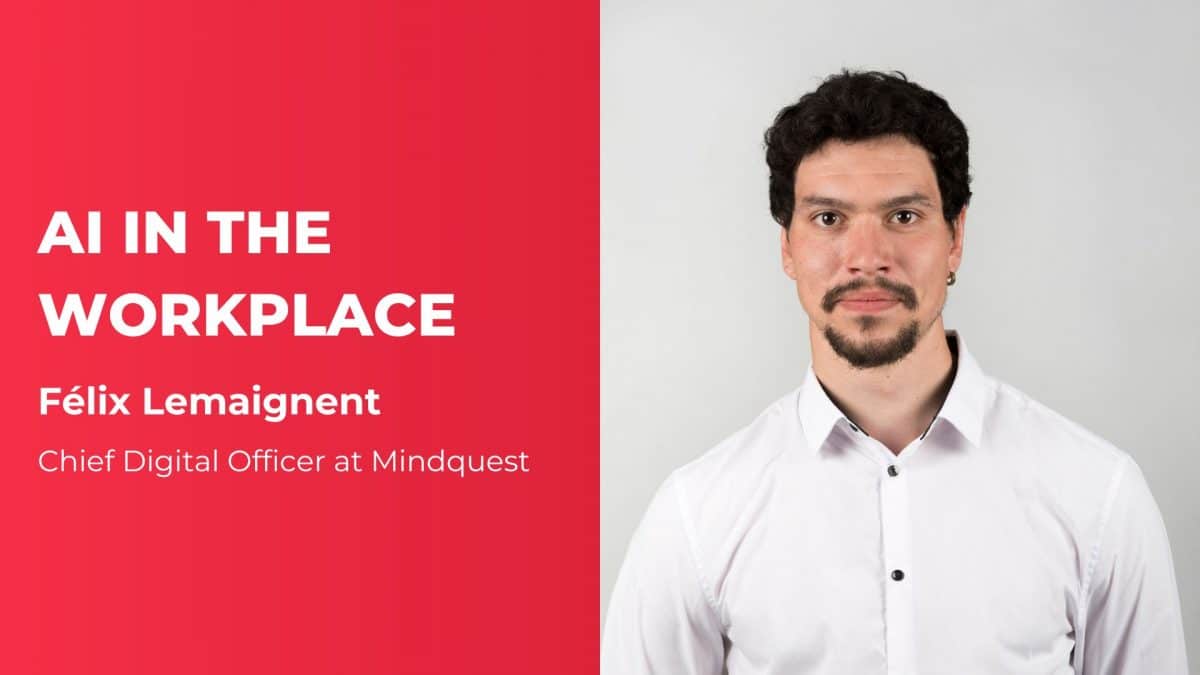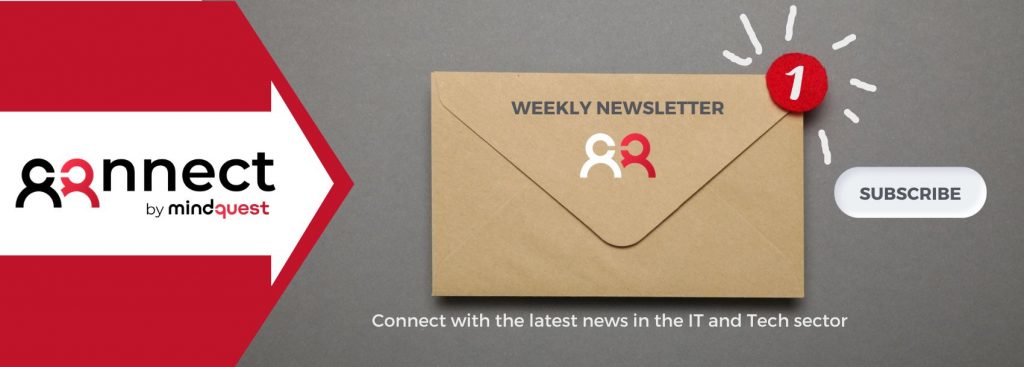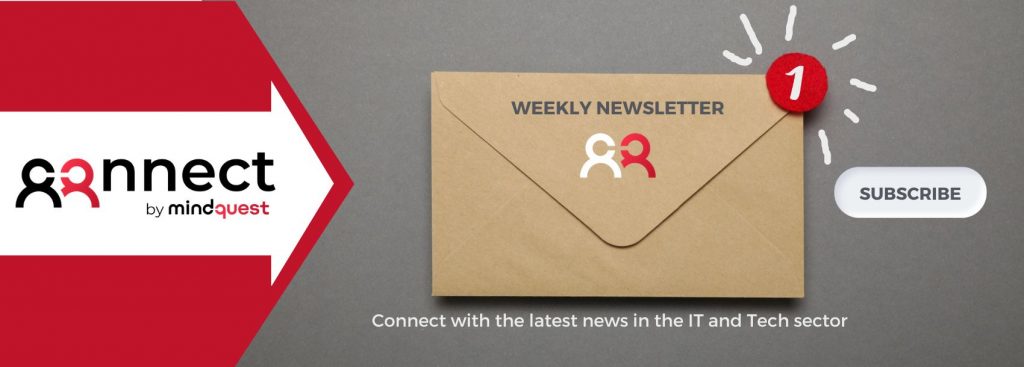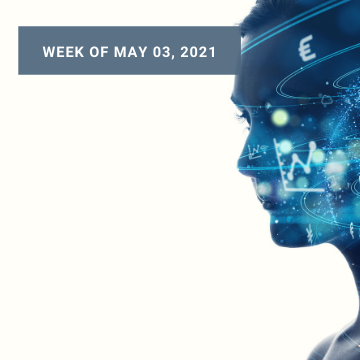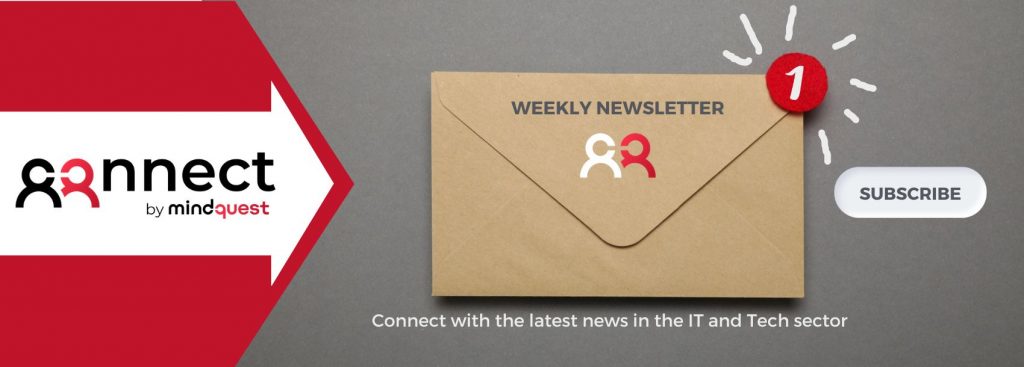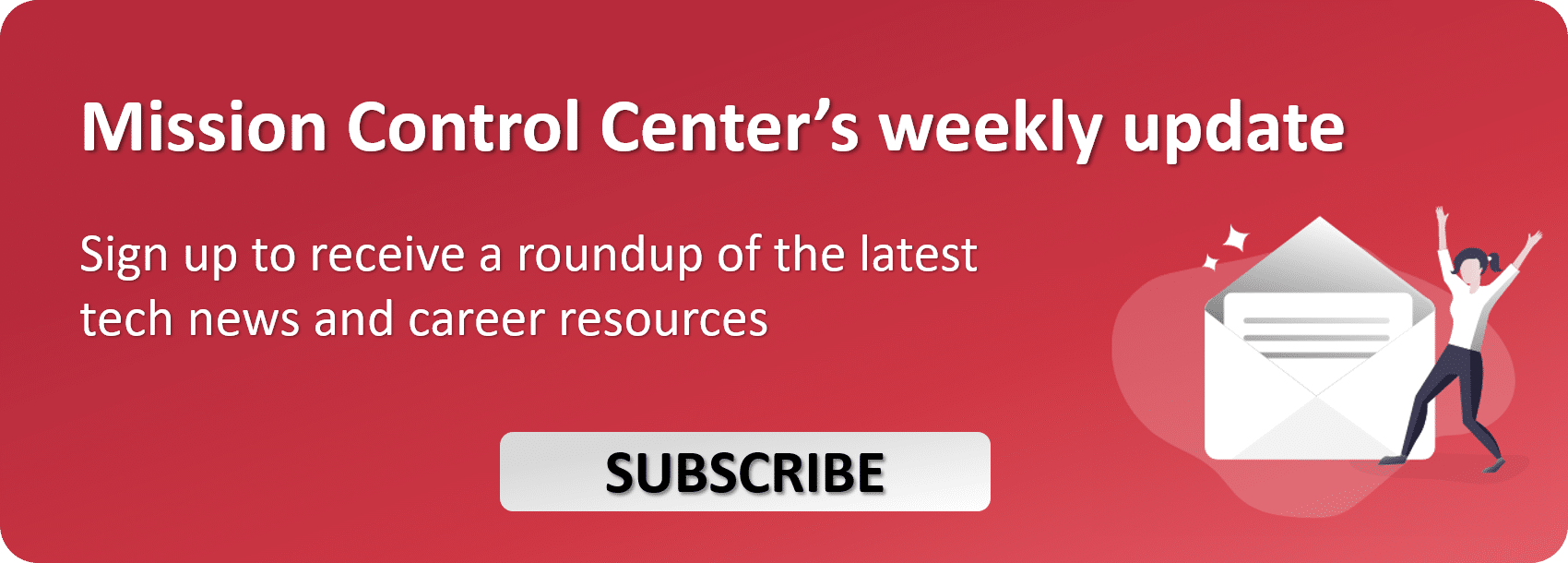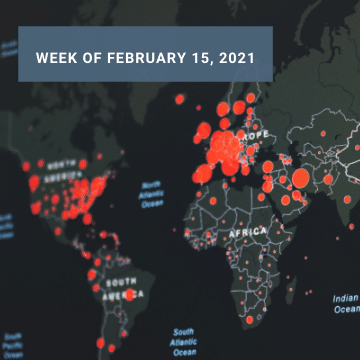In this post, we discuss AI in the workplace with our Chief Digital Officer, Felix Lemaignent.
Need advice on how to start or develop your freelance consulting business in tech or IT? Need to start a new permanent or freelance assignment? Join Mindquest and get support from our team of experts.

Who are the that AI revolution will affect employees affected and what are their challenges?

There are two categories of employees who will face different impacts. Firstly, those whose jobs will be directly transformed by AI. They will have to use it on a daily basis to accomplish their tasks, or work on its development. These are often technical or technology-related profiles. These employees absolutely must stay up to date on AI and understand how to integrate it into their work.
Then there are employees in more traditional professions. They will experience an indirect impact. As with those who have already mastered Excel or Google, those who know how to use generative AI will have an advantage. They will be more productive and versatile, completing their tasks faster and more autonomously. However, this does not always guarantee a better quality of work.
AI is already integrated into many tools, often invisibly. But here, we’re talking about generative AI, that works via prompts or a chatbot interface. This type of AI raises questions about the digital divide. Digital inequalities could increase with the rise of AI.
In this AI expert job description you will find everything you need to know about this profile.
AI in workplace: between challenge and opportunity for employees

Another main challenges is job-related fear. Many wonder whether AI will replace their jobs. Does using AI mean it can do the same job as them? In the case of budgets cuts, will they have to compete with their colleagues to keep their jobs? The ability to use AI to stay competitive will be essential in many areas. For some, AI represents a survival issue.
For others, it is fascinating. Many people are already accustomed to learning new tools, but generative AI marks an important change.
Unlike traditional tools with menus and buttons, AIs like ChatGPT work with text queries. This requires a new way of interacting with technology and developing critical thinking skills. It’s important to understand that the answers provided by AI are not always based on facts. They follow a probabilistic logic.
As with the transition from fax machine to computer, generative AI marks a turning point. The computer has transformed employees into “equipped workers”. Those who master AI will become “augmented workers”.
What are the risks for profiles that don’t train at the IAG?

The digital divide, already visible between generations, will widen between “augmented workers” and “outdated workers”. AI in workplace is here to stay. Those who train will become more competitive, more productive and more versatile. Employees need to be trained, whether in AI or in skills not covered by AI.
But training alone will not suffice. Mastery of generative AI will come with experience and regular use. This process will develop the digital acuity that is essential to remain competitive.
This reasoning also applies to companies. Companies that don’t invest in training their staff run the risk of being left behind. They will also have to deal with data protection and security issues. They can’t afford to have their employees blindly following the mistakes of an AI or copying unverified content.
Will IAG become a criterion for employability?

Companies are looking to optimize productivity while reducing costs. A candidate capable of using AI is an asset. However, mentioning this skill on a CV is not enough. During an interview, the candidate must provide concrete evidence of the impact of these technologies on business problem-solving.
Workers who have mastered AI show their curiosity, adaptability and versatility. These qualities make them capable of evolving and taking on new challenges – profiles that are highly sought-after.
Generative AI is also becoming a valuable training tool. Coupled with lifelong learning, it makes it possible to rapidly deepen knowledge and put new concepts into practice. This capacity for self-training will be crucial to staying competitive.
In career terms, the adoption of generative AI offers a competitive advantage. It accelerates skills development and broadens the scope of users’ tasks.
Take the example of office tools: thanks to AI, a professional can use a wider range of Excel formulas without having to memorize them. Similarly, AI can suggest page layouts or structure PowerPoint content more effectively.
In written communication, AI transforms the drafting of emails and reports. It speeds up the process and improves accuracy, clarity and tone. Employees gain in efficiency and credibility.
These improvements go far beyond increased productivity. They enable employees to devote more time to high value-added tasks, such as strategic thinking or human interaction, which are essential for career development.
Also, read Top 5 Strategies to Overcome the AI Talent Gap
AI in workplace: what does Mindquest do for its employees and customers?

Mindquest offers AI awareness workshops to train its employees, as well as personalized coaching. We actively monitor prompting best practices, AI-related risks and the latest innovations.
We also develop in-house AI tools to meet our needs while maintaining control over our data. Integrating AI into our recruitment processes is nothing new, but generative AI marks a major step forward.
However, we remain vigilant about possible AI biases. At Mindquest, we have put safeguards in place to prevent these biases. AI is not a substitute for human expertise. Properly used, it improves efficiency and ensures fairness in our recruitment processes.
Find your next assignment on our freelance and permanent IT recruitment platform, or join Mindquest so you don’t miss out on any job opportunity!

